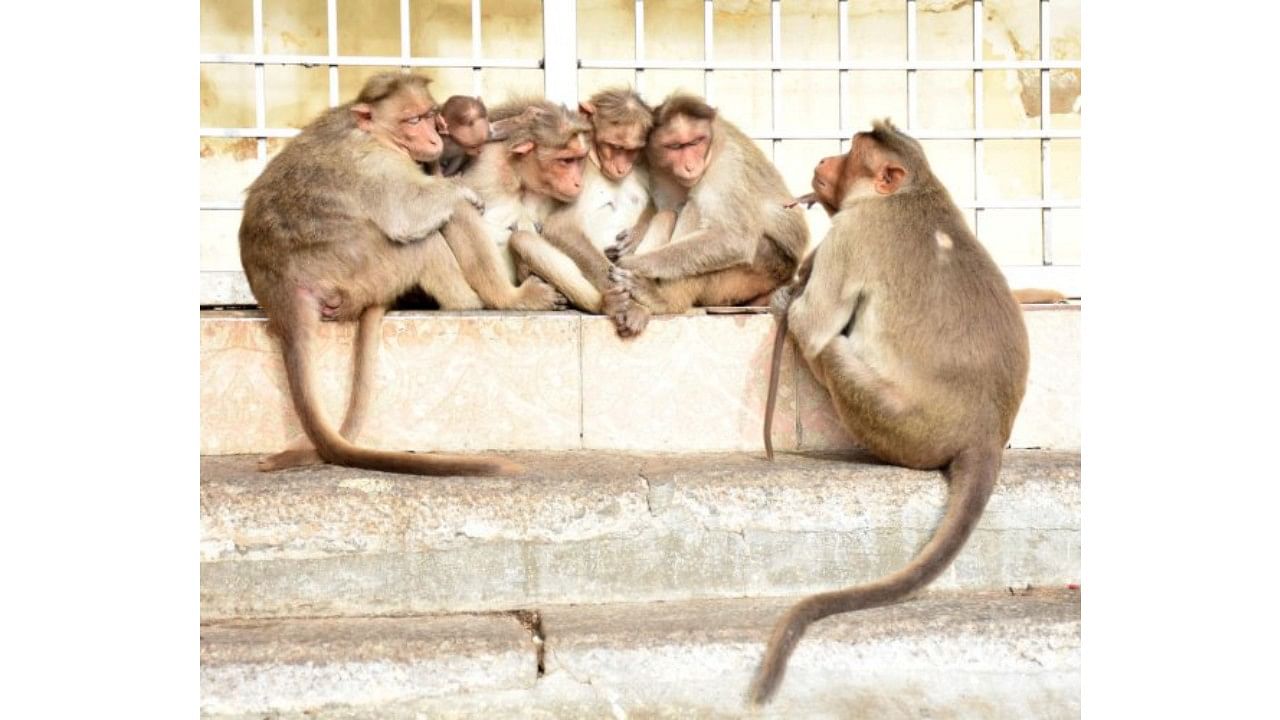
Viral videos of monkeys opening bottles to sip juice may look funny but such skills suggest a major threat to conservation. Increased human interference in pristine habitats of bonnet macaques, the monkeys endemic to south India, has disrupted their natural behaviour and poses a threat to their social organisations, a new study has warned.
The study looked into the behaviour of 137 free ranging monkeys belonging to four groups over the course of three months. The groups were spread over different, sometimes overlapping, parts of Chamundi Hill, which sees a daily footfall of thousands of tourists besides being home to people living in 150 houses and 200 shops.
Researchers from National Institute of Advanced Studies (NIAS), University of Mysore, University of Lethbridge (Canada), Indian Institute of Science and the University of Exeter, England, found that the four simian groups had acquired 11 to 17 innovative foraging techniques, including bottle opening and liquid drinking techniques.
Techniques like uncapping a discarded bottle of juice and other beverages requires detailed and sophisticated understanding of the complexity of the screw-cap mechanism, said the study published in Frontier in Psychology.
The researchers had collected data regarding the availability of discarded bottles and food provisioning by visitors to examine the impact on the natural environment.
Arijit Pal, Postdoctoral Associate, Animal Behaviour and Cognition Programme at the NIAS and lead author of the study stressed correlation between the skills and the degree of human imprint on an environment - from carrying food in an exposed cover to littering.
“The study clearly shows that the groups that had high exposure to availability of bottle had acquired the sophisticated techniques,” he said.
A similar study in 2013 had found sophisticated skills among the simians on Chamundi Hills. However, it was restricted to only a few members of a single group of monkeys in the temple complex atop the hill.
“Our study shows that bottle manipulation is now commonly practiced by individuals of all age groups,” the study said, pointing out that the ubiquity and rapid spread of the sophisticated techniques was due to social transmission of the practices.
The researchers cautioned that the monkeys’ strong propensity to forage and feed on human associated food sources may also lead to their negative interactions with humans.
The drastic increase in human presence and activities in the habitats of the animals is a cause for concern. It has severely disrupted the structure and dynamics of social organisations, it noted. Besides the occasional cases of snatching of food from visitors, simians have also been observed fighting among themselves to get a share of the fruits or other food given to them by humans.
“We not only need a ban on feeding the macaques but restrict eating and drinking in their habitats. This is important to protect them. A crucial aspect of conservation is to ensure that our life doesn’t disrupt the structure and dynamics of their social organisations,” he noted.